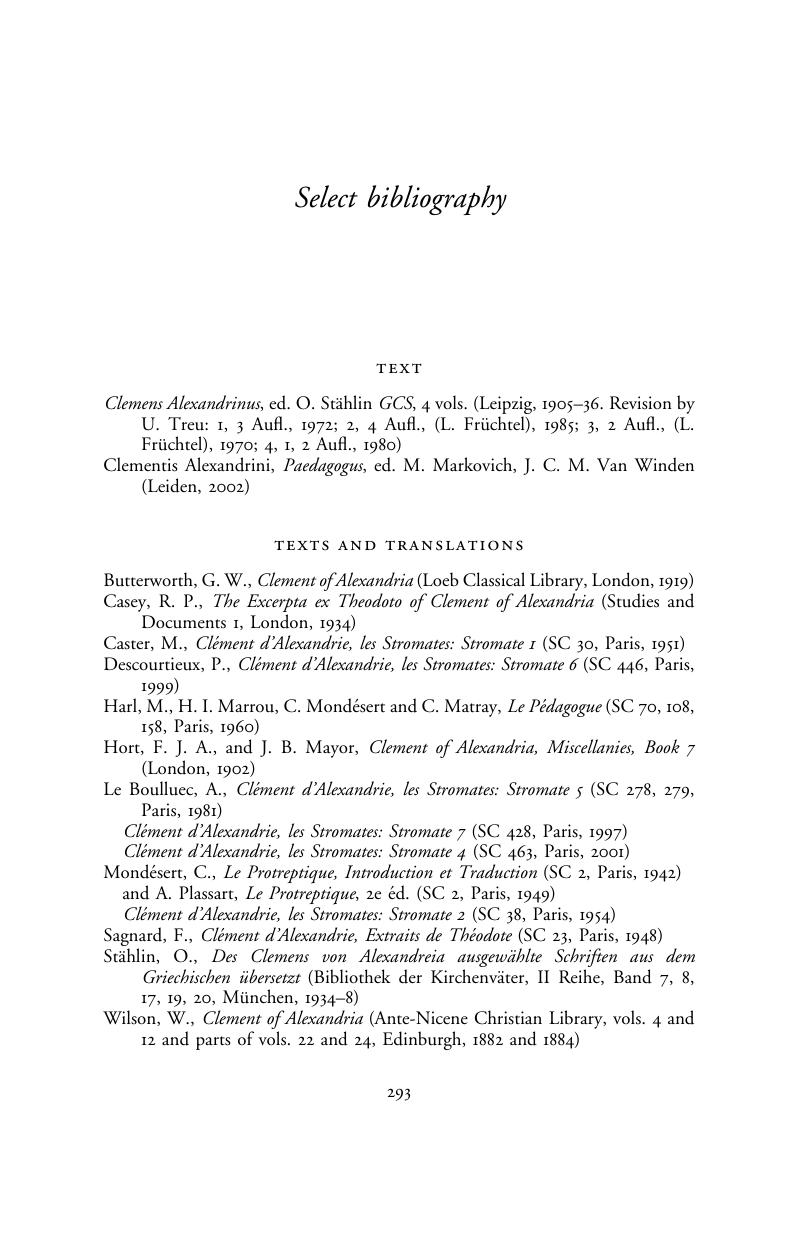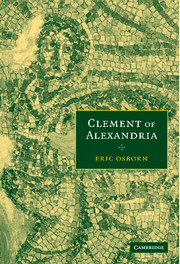Book contents
- Frontmatter
- Contents
- Preface
- List of abbreviations
- 1 Life and works
- PART I DIVINE PLAN/ECONOMY
- PART II DIVINE RECIPROCITY
- PART III FAITH AND SALVATION
- Conclusion
- Appendix: Irenaeus and Clement
- Select Bibliography
- Subject index
- Citations from Clement
- Citations from the Bible
- Citations from ancient authors
- References
Select Bibliography
Published online by Cambridge University Press: 06 July 2010
- Frontmatter
- Contents
- Preface
- List of abbreviations
- 1 Life and works
- PART I DIVINE PLAN/ECONOMY
- PART II DIVINE RECIPROCITY
- PART III FAITH AND SALVATION
- Conclusion
- Appendix: Irenaeus and Clement
- Select Bibliography
- Subject index
- Citations from Clement
- Citations from the Bible
- Citations from ancient authors
- References
Summary

- Type
- Chapter
- Information
- Clement of Alexandria , pp. 293 - 304Publisher: Cambridge University PressPrint publication year: 2005



